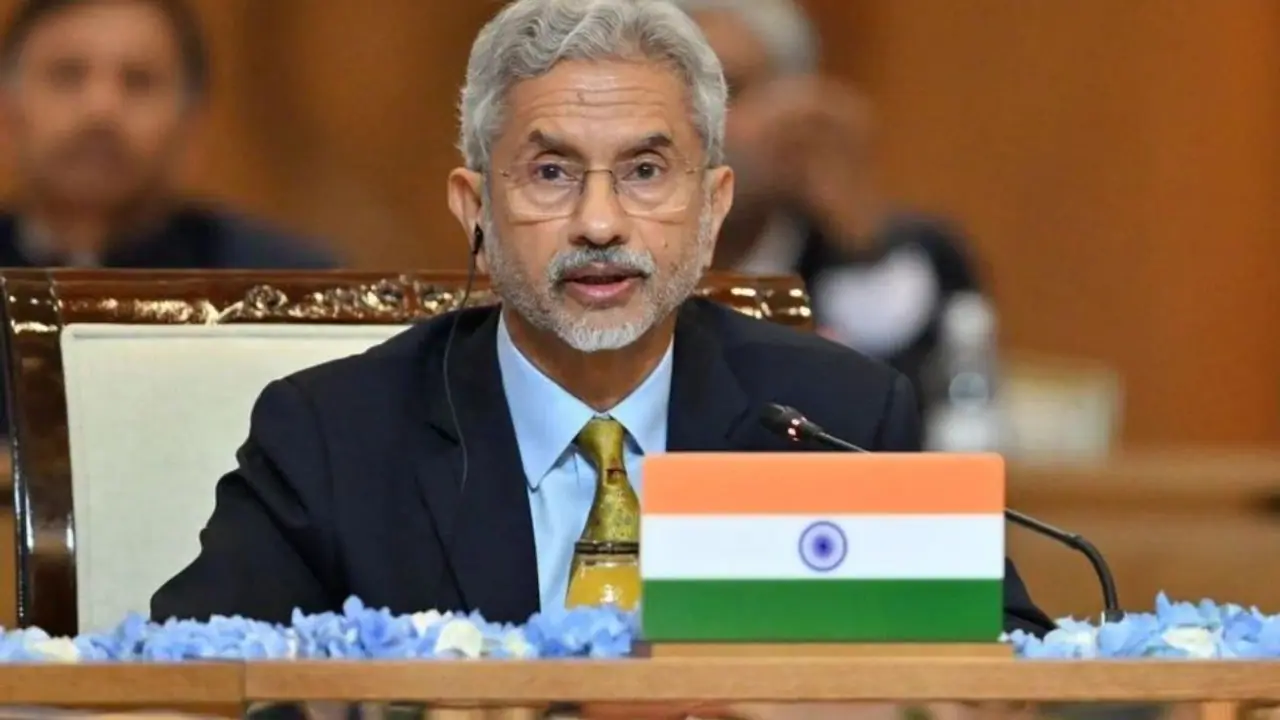EAM S. Jaishankar told a parliamentary panel that Pakistan was informed only after India struck terror hubs under Operation Sindoor, rejecting Congress’s allegations of a pre-strike tip-off as “dishonest and misrepresented.”
External Affairs Minister S. Jaishankar on Monday dismissed allegations that India had tipped off Pakistan ahead of strikes under Operation Sindoor, calling such claims ‘dishonest and a misrepresentation.’ He told a meeting of the Parliamentary Consultative Committee on External Affairs that the Pakistani military was informed only after the operation was complete.

According to multiple sources who attended the closed-door meeting, the minister clarified the sequence of events surrounding India’s military response to the April 22 Pahalgam terror attack, which killed 26 civilians and was blamed on Pakistan-sponsored terrorists.
No prior communication with Pakistan: Government clarifies
Congress MPs questioned whether the Modi government had informed Pakistan before launching military strikes on terror infrastructure in Pakistan and Pakistan-occupied Jammu and Kashmir. The government firmly denied the accusation.
“There was absolutely no conversation between India and Pakistan before the strikes, other than at the DGMO level and even that happened only after the operation,” sources quoted S. Jaishankar as saying.
The official sequence, as described to the panel, was:
- Strikes were carried out against terror hubs.
- The Press Information Bureau (PIB) issued a public statement.
- Then, India’s Director General of Military Operations (DGMO) informed his Pakistani counterpart.
“The misrepresentation of this timeline is dishonest,” Jaishankar reportedly told the MPs, adding that he personally never spoke to anyone on the Pakistani side.
No US mediation, halt came after Pakistani request
Addressing another rumour, the minister clarified that the ceasefire after Operation Sindoor was not due to American pressure. Instead, it was a bilateral military decision.
“The operation was halted only after Pakistan’s DGMO requested cessation of hostilities. There was no involvement or mediation by the US or any third party,” the minister said.
This clarification was seen as a direct rebuttal to comments by Congress leader Rahul Gandhi, who had earlier accused the minister of surrendering under foreign influence and informing Pakistan prematurely.
Broad global support for Operation Sindoor
Government sources also informed the panel that India received wide international support for Operation Sindoor. Only three countries, namely Turkey, Azerbaijan and China did not back India’s stance.
A notable mention was made of German Minister Johann Wadephul, who, during a joint press briefing with Jaishankar in Berlin on May 23, said, “India has every right to defend itself against terrorism… We condemned the brutal terrorist attack in April in the strongest terms.”
India’s narrative that the operation was not against Pakistan, but against terrorism was reportedly well received by the global community.
Operation Sindoor: A quick recap
Launched on May 7, Operation Sindoor was India’s military response to the April 22 Pahalgam terror attack. Indian Armed Forces targeted and destroyed several terror camps run by Jaish-e-Mohammed, Lashkar-e-Taiba, and Hizbul Mujahideen. Over 100 terrorists were reported killed.
The government told MPs that the operation dealt a serious blow to Pakistan’s military morale and credibility, as it failed to defend key terror infrastructure.
Indus Waters Treaty, terror talks, and national unity
The meeting also saw questions raised about the Indus Waters Treaty. Congress MPs wanted to know if its suspension was symbolic or permanent. The government responded that the treaty was currently “in abeyance” and further steps would be shared soon.
On the subject of US leaders, including Donald Trump, calling for India-Pakistan dialogue, Jaishankar reiterated India’s longstanding stand that “terror and talks cannot go together.”
S. Jaishankar appeals for unity
Concluding the meeting, S. Jaishankar made a strong appeal for national unity, asking all parties to present a united front on global platforms. He highlighted that seven multi-party delegations had been dispatched to inform foreign governments about Pakistan’s role in terrorism and India’s zero-tolerance policy.
“The same spirit that parliamentary delegations are showing abroad should be reflected at home,” Jaishankar was quoted as saying.
This parliamentary exchange comes amid increasing scrutiny of India’s handling of cross-border terror and foreign policy messaging. While the government has stood firm on its strategy, the Opposition continues to seek clarity and accountability—especially on matters involving diplomacy, military action, and national security.


